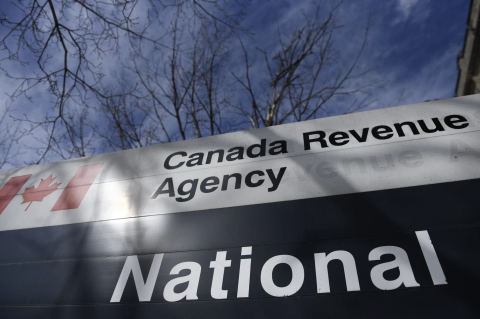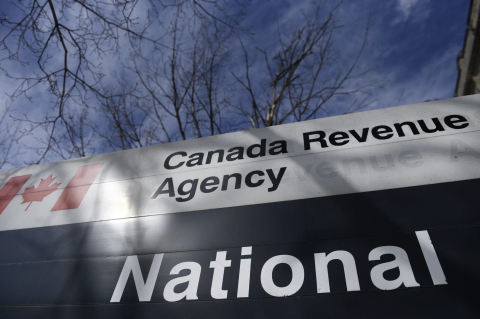
This article originally ran in the Toronto Star.
In this time of rising living costs, Canadians are feeling the affordability pinch. Some powerful voices are quickly stepping up to say taxes are to blame, decrying the government’s supposed overreach into our pockets. But the real conversation we should be having is how Canada’s tax burden is distributed, and whether everyone is paying their fair share.
According to our recent research with the Canadian Centre for Policy Alternatives (CCPA), the median family in Canada pays roughly 43 per cent of their income in taxes. The lowest income families fare slightly better, paying 35.1 per cent. Most Canadians would think this part of the distribution of taxes to be fair. Canada values a progressive tax system where those with more pay more — not just dollar for dollar but as a percentage of what they make.
Canada’s income tax system is for the most part progressive — the average tax rate on $500,000 in income is higher than that on $50,000 in income. However, income taxes are not the only type of tax Canadians pay. Sales taxes like the GST/HST, payroll taxes that fund the Employment Insurance and Canada Pension Plan programs, and property taxes are all regressive — lower income Canadians pay a much higher proportion of their income to these taxes than the richest pay. Add to that a number of existing tax loopholes that allow for large tax deductions among those with the highest incomes and our tax system becomes even more skewed.
The result is that the top one per cent pay only 23.6 per cent of their income in taxes, enjoying the lowest tax burden of all of us. Strangely, the anti-tax voices that have come running to defend the wallets of the middle class in recent months have failed to mention this fact. They never talk about how the richest Canadians and corporations are paying the lowest tax rates. Instead, they call for tax cuts and rail against the government’s reduction of the tax break on capital gains — a measure that will modestly shift the tax burden towards those upper incomes where it belongs.
Most Canadians, however, think the Canadian tax system is unfair because they understand that the wealthiest do not pay their fair share. In fact, a recent Abacus poll found that increasing income taxes on the top one per cent was the most popular of 17 policy proposals by a wide margin, and across partisan leanings.
Taxing the rich is a far better solution to our affordability crisis than cutting public funding. The pandemic reminded us why public services are so essential. Death rates were higher in for-profit care homes than non-profit care homes. Driven by private profiteering, prices for essential goods like groceries and housing shot through the roof, contributing to inflation, while prices for goods provided by the public sector were controlled.
Now we need to not just maintain existing public services but expand them. We need public housing, investment in clean public transit, and support for workers in fossil fuel industries. By allowing the wealthiest to have a lower tax burden than everyone else, we allow them to continue to have an outsized influence on how to organize our economy — meaning we will continue to fail to invest in public, nonmarket housing, and fail to meaningfully address the climate crisis.
As we move into an election year, we must put taxing the rich back on the table. The polls are clear — there is broad support for taxing the rich. Policies like a wealth tax, an excess profits tax, and increasing top marginal income tax rates can both make our tax system fairer and provide all of us with the collective power to decide where investment is needed in our society. Public investment in affordable housing, public health care, affordable quality education, clean green jobs — this is what we can choose to do with a tax system where everyone pays their fair share.
Katrina Miller is executive director at Canadians for Tax Fairness. Silas Xuereb is a researcher and policy analyst at Canadians for Tax Fairness.
